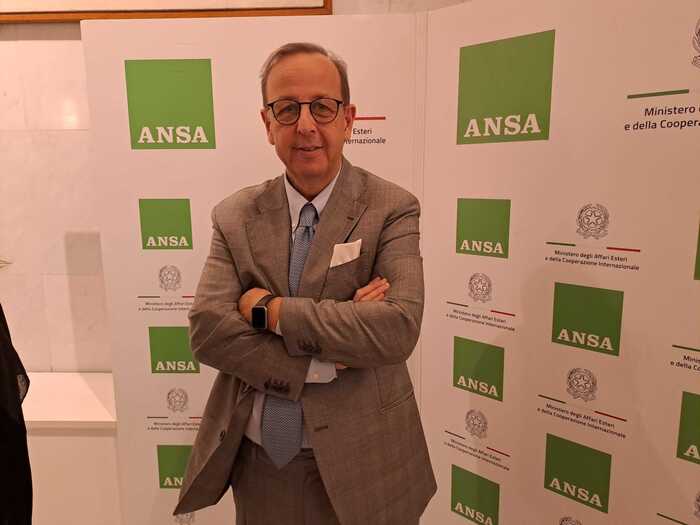(ANSA) - ROMA, 17 DIC - 'There is great harmony between the two leaders, President Meloni and PM Modi, who in November signed an action plan for the next five years. A plan that wants to pursue the national interest'. This was stated by Antonio Bartoli, Ambassador of Italy to India, on the sidelines of the 17th Conference of Italian Ambassadors to the World at the Farnesina. The plan, Bartoli explained, is based on "objective complementarities". India and Italy, in fact, "are both peninsulas, trading since the days of ancient Rome" and this was a strong point for the India-Middle East-Europe Economic Corridor (Imec) project, which will run from India to Europe: "We think," the ambassador stressed, "that Italy is its natural terminal". There are also, he added, 'economic complementarities'. "India wants to become a great manufacturing country, and we are very strong in machinery exports. We can play a big role with our technologies and help create a manufacturing sector that generates employment.' Finally, the labour market. India 'is a big pool, containing one sixth of the world's population. Just think that two and a half million Indians are graduates in scientific, technical, economic and mathematical disciplines. Italy,' Bartoli noted, 'needs qualified personnel and with the agreement signed between Rome and New Delhi it will be possible to bring qualified personnel to Italy, outside the flow decree, provided they have been trained in India. This opens up great opportunities for our training system'.
As for the penetration of SMEs, the ambassador noted that India "still has a protectionist attitude", so it is not "very easy" for a small company to "penetrate the market". Nevertheless, there are 'very successful models' to facilitate SMEs. "For example," he explained, "we guarantee loans that Indian buyers contract with banks to lower interest rates," provided that they "undertake to examine Italian suppliers. There is therefore the possibility of investing, which does not mean delocalisation,' he concluded, 'but true internationalisation. This opens up great prospects in sectors such as defence, space, green technologies and mobility in a country that is third in the world for innovation'.
Leggi l'articolo completo su ANSA.it
